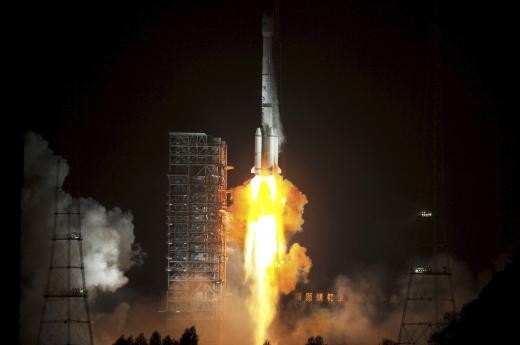Tupac Katari, the first satellite made by China for Bolivia, has generated $16 million in a little more than a year in orbit, the Bolivian News Agency (ABI) reported on June 23, Tuesday.
Ivan Zambrana, director of the Bolivian Space Agency (ABE), confirmed the information to reporters.
"Last year we were close to 10 million dollars and so far this year, we must be around 6 million dollars," Zambrana said.
The Chinese-made satellite, which is Bolivia's first orbiting spacecraft, is named after a historical figure. It was launched on Dec. 20, 2013, from China's Xichang Satellite Launch Center, and following a series of tests, its commercial operations began in April 2014.
Zambrana said that the TK SAT 1 has been a profitable venture since it generates $1.5 million a month, which is expected to rise to $2 million a month by the end of the year. At present, at least $20 million a year has been earmarked to pay for the project's debt.
The satellite was built by the China Great Wall Industry Corporation at an estimated cost of $300 million, and 85 percent of the amount was financed by the Development Bank of China and 15 percent by Bolivia.
Zambrana added that the satellite has made its biggest contribution to the government's Telesalud, or Telehealth, a program which aims to bring specialized medical attention to Bolivia's remote rural region.
The Tupac Katari satellite was launched on a Long March 3B rocket from the Xichang space center in Sichuan Province in Dec. 2013. Bolivian President Evo Morales personally witnessed the launch at Xichang. He was the first foreign head of state to view a satellite launch from China.
"Never again will we be incommunicado, as before when we were . . . in the dark," said Bolivian President Evo Morales, during the launch at Xichang.
Designed for a 15-year service life, the Tupac Katari satellite is based on the DFH-4 spacecraft bus developed by China Aerospace Science and Technology Corp.



























